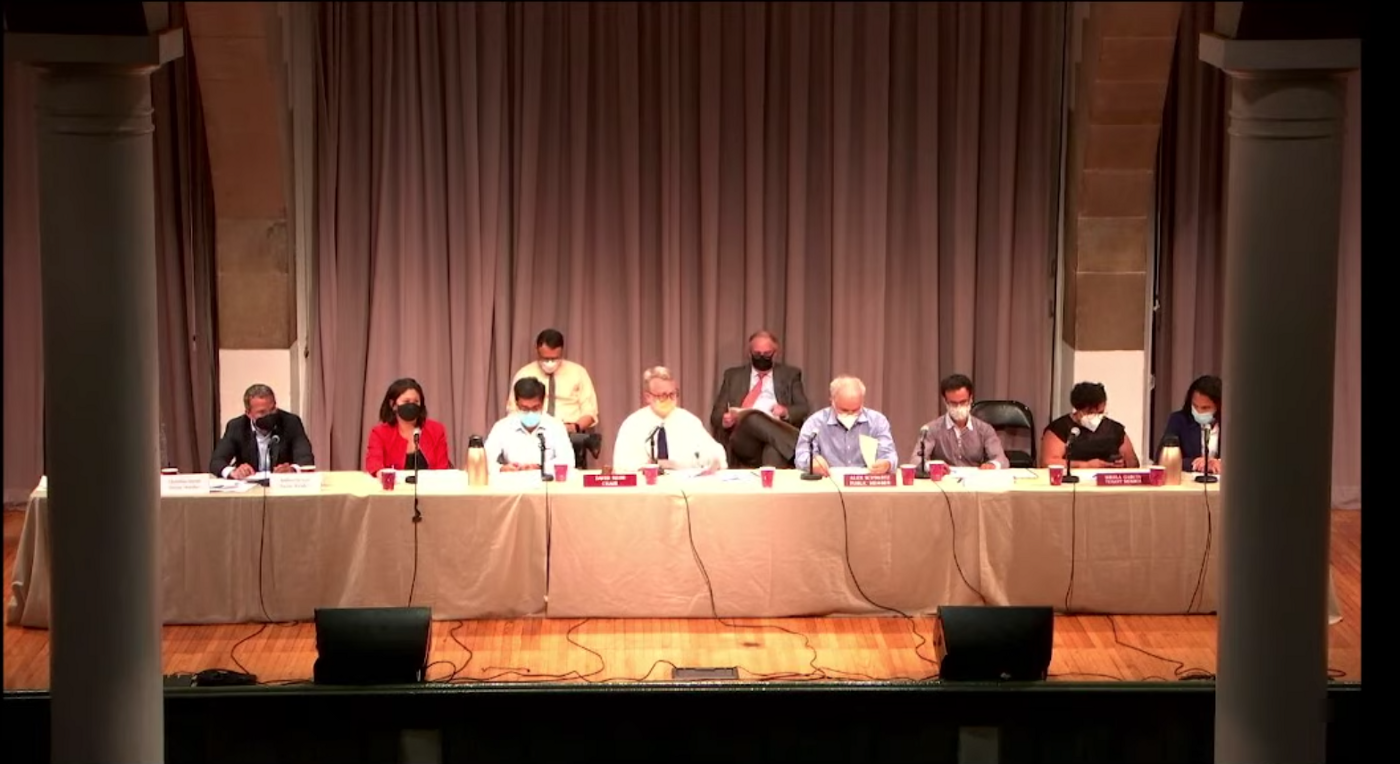The dynamic Science Department at Yeshiva University High School for Girls (Central) regards experiential learning as a cornerstone of its curriculum. The result? Exciting opportunities for students in Biology, Chemistry, and Forensics to test their knowledge outside the classroom.
During the month of February, a group of YUHSG students are doing just that, beginning with a cohort participating in Yeshiva University’s annual Medical Ethics Conference on Sunday, February 2. This year’s event focused on the growing use of AI in medicine. “The students were on the edge of their seats,” said Science Department Chair and Science Institute Director, Mrs. Ruth Fried, who accompanied the group to YU along with Science Department faculty member Mrs. Miriam Chopp.
“These Central students were the only high school students in a room full of undergraduates, graduate students, and professionals, and the conversations and questions were at a compelling, professional level. And their reflections afterward anticipated the future: How am I helping my patients by insisting on my voice being a part of the conversation?”
This year’s installment of the long-running conference, which explores the interface between medicine and halachah, discussed issues ranging from transhumanism to perspectives discussed in the Talmud. “The YU Medical Ethics Conference gave insight into the way AI can be used in medicine, and how with that, halachic concepts can be applied,” observed senior Esther Nazarov, who attended the event. “The conference included multiple speakers, each with a different take on how AI can propel the medical field forward.”
Senior Elmira Kohen also found herself inspired by the conference. “Attending the conference helped me see how what we learn in AP Biology applies to real-world issues, especially in medicine,” she reflected. “It deepened my understanding of the balance between science, technology, and human judgment, which is something I can definitely relate to in the classroom.”
For many students, these outside opportunities are the beginnings of careers. “These are professional, intellectual experiences for these students,” Mrs. Fried said. The cohort included one member of YUHSG’s Pathways program, which offers a select number of incoming freshmen who maintain GPA and school portfolio expectations to be automatically accepted into the Stern Honors Program during their senior year at Central.
And on Wednesday, February 19, Mrs. Fried’s AP Biology class, as well as Science faculty Mrs. Shulamith Biderman’s Forensics class, engaged in a rite of passage for YUHSG’s junior- and senior-level AP Biology and Forensics students: the annual visit to the Dolan DNA Learning Center in Cold Spring Harbor, where students put skills learned in their home lab to the test in the outer world.
During their first visit, students focused on gel electrophoresis and bacterial transformation. Gel electrophoresis is a technique in which DNA is placed on a gel surface and run through an electrical current to separate the DNA into distinct pieces according to size, granting specific, banded patterns that enable specialists to compare and contrast the DNA of different people. On February 26, the AP Biology class will return to the DNA Center in order to execute a fingerprinting lab in which students will use their own DNA to look for Alu elements.
The spring semester at YUHSG continues with YUHSG’s Model UN team competing at the annual YUNMUN competition in late February, as well as key matches for YUHSG Debate, Mock Trial, College Bowl, and Torah Bowl.













